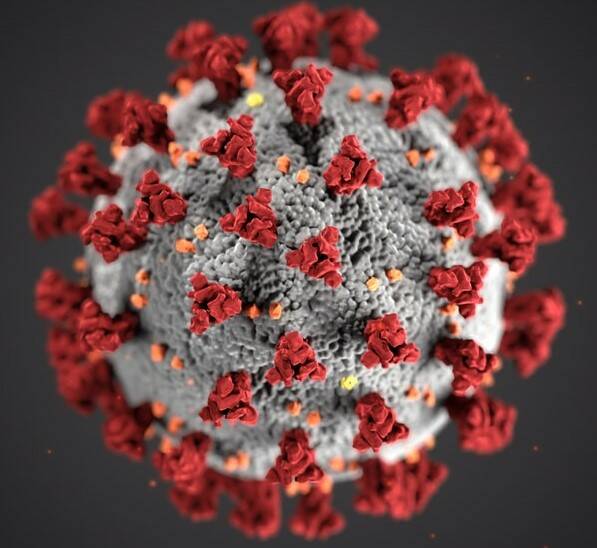Turning Challenges into Solutions
AU-EU industrial SME-value chain partnerships boost global climate neutrality and circular economy, bring AfCFTA to its full potential, and revive the EU economy
The art to seek and forge ‘win-win’ international SME-partnerships Africa-Europe
CHALLENGES
JOBS, EDUCATION, ENTREPRENEURSHIP, YOUTH ENTREPRENEURSHIP
- “A beautiful diploma, no job?” Over the last five years I had the opportunity to interview in Africa over 800 young, smart, motivated masters in engineering, agronomy and economy, educated by professors with a Western PhD (in Burkina Faso, Burundi, Côte d’Ivoire, Cameroun, Mali, Niger, Senegal). Five years after graduation three quarters of them still where without a decent job. Reason: a severe lack of jobs in advanced manufacturing industries and associated services. Large families select a couple of their brightest children and invest in a college education for them. They rightly believe that education is a prerequisite for a decent job. I met personally with these college graduates and their families and was confronted with their disillusionment: a pre-radicalisation situation prior to exposure and adoption of extremist ideology.
- Scared for continued Western dominance. In the same countries I visited the workshops of 60 industrial SMEs (agricultural machinery, electromechanical business, agribusiness, ICT). When trying to convince them to seek a partnership with a more advanced international peer they argued “Since decades the leonine clauses of partnership agreements between us and more advanced international partners pushed us to attempt survival in autarky”.
- Start-ups as a policy for the emergence of an inclusive and sustainable industrialization in Africa? Sorry for a new warning signal. In France, for several years, the creation of start-ups has been growing exponentially. The few rare successes which the media praise are the trees that hide the forest: 42% of start-ups fail, 90% do not pass the 5-year mark. Also in Africa, public authorities rely on start-ups for their economic recovery. It remains to be seen whether start-ups will be able to assimilate the skills, technologies and know-how adapted to the challenges posed by relentless and definitively globalized competition: quality, standards, innovation, digitization, global citizenship, ethics, etc. …. More: START-UP - LA GRANDE ILLUSION (France)
CLIMATE CHANGE – POST COVID RECOVERY
- At the end of this document a proposal for a “cheap” kick start scenario (not evidence based). The promotion of a win-win circular know-how economy Africa-Europe boosts Africa’s advanced industrialisation, contains the global climate neutrality, brings Africa’s continental free trade agreement (AfCFTA) and human development to its full potential … and revives the EU economy.
TURNING CHALLENGES INTO SOLUTIONS
JOBS, EDUCATION, ENTREPRENEURSHIP, YOUTH ENTREPRENEURSHIP
- Africa’s 'youth employment' crisis is actually a 'missing jobs' crisis. The problem is with the economy and “missing jobs” for everyone—not just for young people. A focus on youth-targeted interventions distracts policymakers and stakeholders from developing the policy agenda for structural change. Policy conclusion no 1: “Industrial policy to increase private investment in labour-intensive manufacturing and services”- Brookings Africa Growth Initiative (September 2020)
- ‘There is not a single country in the world that has reached a high stage of economic and social development without having developed an advanced industrial sector‘ (Kofi ANNAN, 2015)
- Jobs & Youth Entrepreneurship. When talking to the many young college graduates and their civil society peers they unanimously are convinced that only Africa’s advanced agri-, food- and manufacturing industrialisation and associated services will create per year more jobs than Africa’s demographic growth and solve the root causes of Africa’s 'youth employment' crisis and inequalities.
Complementary industrial partnerships, which have the experience of advanced industrial processes and technologies, will enable African rich natural resources to be locally transformed into competitive products. While employed by advanced vested industrial enterprises or at AU-EU complementary partnerships the highly educated African youth learns on the job "the trade" of modern entrepreneurship open to international competition; not at university, in incubators or by accompanying Western experts.
After a few years of practice at a Foreign Direct Investor or in an industrial SME active in international industrial value chains, equipped with a solid experience of business management concepts and advanced technologies, some young executives detect a new promising niche, will create their start-up … and succeed. Hence the imperative need to get African start-ups and SMEs to take the initiative to seek partnerships with more advanced international entrepreneurs.
CLIMATE CHANGE
AFRICA’S ADVANCED INDUSTRIALISATION MAKES THE PLANET GRETA AGAIN
Thousands of Africa-Europe industrial SME-value chain partnerships boost the global climate neutral and circular economy, bring Africa’s continental free trade agreement (AfCFTA) and human development to its full potential … and revive the EU economy


Greta Thurnberg to world leaders 23/9/3019
The challenge is enormous: to reconcile Africa's economic and social progress with the radical changes in human behaviour needed to prevent the climate apocalypse and pandemics.
A plea to raise awareness among thousands of small and medium-sized African industrial enterprises why and how to seek win-win partnerships with more advanced (European) peers
Takeaways: 20 million new decent jobs per year in Sub-Sahara Africa - Cheap renewable solar-hydro-wind-biomass energies – Short value chains – Deglobalisation of manufacturing - Digitised globalisation of know-how – African demographic dividend – Biodiversity - Combat desertification – Carbon fixation – Governance – New political powerhouse – A whole of society approach
In an epoch of the Anthropocene, and an unprecedented coincidence of climate change, pandemics, China workshop of the world and Africa’s demographic explosion, Africa’s advanced industrialization is able to achieve a breakthrough in its inclusive human development without putting immense strain on the planet. However, this requires a critical mass of thousands of Africa-Europe SME partnerships. They permanently transfer advanced industrial know-how to Africa and create 20 million new and decent jobs per year.
The assets of Africa: it’s emerging common market (AfCFTA), an educated demographic dividend, ubiquitous cheap green energy, agricultural land of the world, 90% digital connectivity, a financial upper tier and emerging democracies.
On top of that massive industrial partnerships Africa-Europe lay the foundation for an informal, but powerful geopolitical Africa-Europe alliance to lead global consultations on the economy, climate, pandemics, migration, and on unpopular measures needed to save the planet.
Unfortunately African SME’s fear continued dominance of their old colonial powers and European entrepreneurs are not aware of “the other Africa”. EU industrialists must regain “enthusiasm” to invest in Africa. A government led guided “Whole of Society Approach” is indicated to achieve a broad mentality change as well in Africa as in Europe.
Contributions of Africa’s modern advanced ‘for profit’ industrialization to achieve a breakthrough in its Human Development Index, avert the global climate crisis and prevent pandemics.
- Eternally renewable energy for development. In Africa, modern agro-, food- and manufacturing industries and related services make extensive use of the decentralized off-grid solar-hydro-wind-biomass energy resources; they are eternally renewable, inexpensive and without recourse to central fossil fired power plants and inefficient, visually polluting high-voltage lines.
- Short supply chains (de-globalisation of manufacturing, digitised globalisation of industrial know-how). The local processing of African natural resources, in the short value chain, for local and neighbouring markets, leads to a significant reduction in transport kilometres, CO2 emissions and virus spread.
- Deglobalisation of manufacturing. Africa’s increase in well-being gives rise to an important higher educated middle class and a positive cycle of investments and innovations. Africa’s shining example stimulates worldwide a balanced spread of advanced production in the short value chains close to the end user.
- A formal economy. Industrial value chain partnerships between ‘formal’ European SME’s and African SME’s automatically lead to ‘formal’ economic alliances. All “links” in the international value chain become “formal”.
- Demography. Increasing well-being automatically reduces African demographic explosion and its associated ecological footprint.
- Biodiversity. Solar pumps & irrigation stimulate reforestation, create new farmland and combat desertification.
- Innovation. Relocation of manufacturing industries to Africa stimulates peer pressure in other continents to innovate faster in a low-carbon economy and new technologies, including carbon capture systems.
- Government governance. ‘Formal’ win-win EU-AU industrial partnerships accelerate a ‘formalisation’ of the African economy and generate fiscal income for African governments, allowing local governments to install decent work and social protection mechanisms.
- Dismantling imbalances. The advanced local transformation of African natural resources into competitive products and services for the local and neighbouring markets takes a transformational step forward to support the world’s societies and the planet together.
- Public action. In an era of growing nationalism, industrial Africa-Europe partnerships encourage the ad-hoc creation of a new informal geopolitical powerhouse between neighbours AU-EU able to take the lead in global negotiations on innovation (e.g. vaccines) and on unpopular measures needed to save the planet: carbon tax, consumption (e.g. meat), reforestation, urbanization, migration, etc. “Europe and Africa can change global politics in a ‘revolutionary’ way” ( Mogherini, 8/11/2018). No country, no continent on its own, is able to reduce greenhouse gas emissions and contain virus pandemics.
A KICK START


A guided ‘Whole-of-society approach’ for a broad mentality change by leaders in Africa and in Europe
(Effective & Efficient, no or limited need for new public financing)
- In Europe. Broad awareness-raising sessions on “The Other Africa” encourage some industrialists to invest in Africa or to respond to proposals for partnerships of African industrial SMEs. Their successful example encourages imitation. To make the broad public aware of ‘The other Africa’ and the investment opportunities offered in 10-15 Sub-Saharan countries with documented stable institutions
- In Africa. Africa massively organizes training sessions for its SMEs on why and how to realize "win-win" partnerships with more advanced industrial partners. To make African industrial SME’s aware why and how to participate and succeed in international industrial value chains.
- Lessons learned and first success stories from a quick inexpensive first step in awareness creation is used for a more comprehensive program with all African countries.
PS
-
Preconceived opinions. In Belgium, the Netherlands and Germany I interviewed over 200 vested, solid industrial SMEs, their business federations and promoted the strength of Africa. Only ten of them decided for a small investment in Sub-Saharan Africa. Nobody was able to cite two Sub-Saharan countries with well document fairly stable institutions and accessible industrial zones. A preconceived stigmatised opinion of an unstable Africa is deeply engrained their minds.
-
“The art to seek and forge win-win partnerships with more advanced international industrial peers”. It would be a pleasure for me to exchange ideas how to assist Africa to train their industrial SMEs a new competence “The art to seek and forge win-win partnerships with more advanced international industrial peers” (Beyond the standard capacity building activities on ‘Business Administration’ already teached at hundreds of African colleges and university colleges).
17/02/2021 Karel Uyttendaele


Maak jouw eigen website met JouwWeb